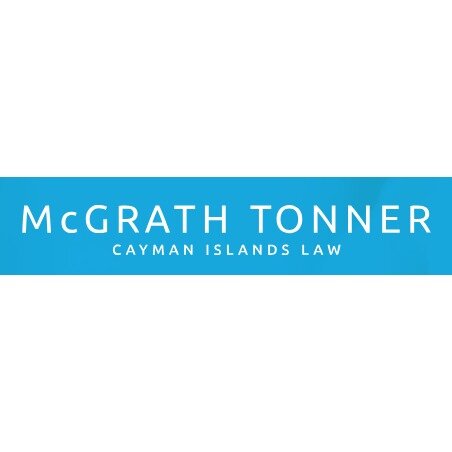Best Land Use & Zoning Lawyers in George Town
Share your needs with us, get contacted by law firms.
Free. Takes 2 min.
Free Guide to Hiring a Real Estate Lawyer
List of the best lawyers in George Town, Cayman Islands
About Land Use & Zoning Law in George Town, Cayman Islands
Land Use & Zoning law in George Town, Cayman Islands dictates how land can be utilized and developed within the region. These laws are designed to regulate the use of land to ensure efficient land use, promote orderly development, and protect the environment.
Why You May Need a Lawyer
There are several situations where you may need the assistance of a lawyer specializing in Land Use & Zoning law in George Town. Some common reasons include obtaining permits for construction projects, appealing zoning decisions, resolving boundary disputes, and understanding local regulations.
Local Laws Overview
In George Town, Cayman Islands, the Zoning Law governs land use regulations, development standards, and zoning classifications. The law outlines permitted land uses, building height restrictions, setbacks, parking requirements, and other regulations that must be followed when developing or using land within the region.
Frequently Asked Questions
1. What is the purpose of zoning laws in George Town, Cayman Islands?
Zoning laws in George Town, Cayman Islands are designed to regulate land use, ensure orderly development, protect property values, and promote public health and safety.
2. How can I obtain a building permit in George Town?
To obtain a building permit in George Town, you will need to submit a permit application to the Department of Planning, along with detailed plans and other required documents. The application will be reviewed to ensure compliance with zoning regulations before a permit is issued.
3. Can I appeal a zoning decision in George Town?
Yes, you can appeal a zoning decision in George Town by submitting an appeal to the Development Control Board. The board will review the decision and may grant variances or modifications to zoning regulations under certain circumstances.
4. What are setbacks and how do they apply to property development?
Setbacks are the required distances between a property line and a building or structure. They are imposed to ensure adequate space between buildings, protect neighboring properties, and maintain a consistent streetscape. Setbacks are specified in zoning regulations and must be adhered to during property development.
5. Are there restrictions on the types of businesses that can operate in certain zones in George Town?
Yes, zoning laws in George Town restrict the types of businesses that can operate in certain zones to prevent incompatible land uses and protect the character of the area. Businesses must comply with zoning regulations to establish or operate within a specific zone.
6. How can I determine the zoning classification of a property in George Town?
You can determine the zoning classification of a property in George Town by checking the official zoning map or contacting the Department of Planning. The zoning classification will dictate the permitted land uses, building standards, and other regulations applicable to the property.
7. What is the process for rezoning a property in George Town?
The process for rezoning a property in George Town involves submitting a rezoning application to the Department of Planning, presenting the proposal to the Development Control Board, and obtaining approval from the Legislative Assembly. Rezoning requests must demonstrate compliance with the local development plan and public interest.
8. Can I subdivide my property in George Town?
Yes, you can subdivide your property in George Town, but you will need to comply with subdivision regulations, obtain approval from the Department of Planning, and adhere to specific requirements regarding lot sizes, road access, utilities, and other considerations.
9. What are some common land use violations in George Town?
Common land use violations in George Town include building without permits, operating a business in a residential zone, exceeding building height restrictions, encroaching on setbacks, and violating environmental regulations. Violations may result in fines, penalties, and enforcement actions.
10. How can a lawyer help me with Land Use & Zoning issues in George Town?
A lawyer specializing in Land Use & Zoning law can provide legal advice, represent you in zoning matters, assist with permit applications, negotiate with government agencies, advocate for your rights, and help you navigate complex land use regulations in George Town.
Additional Resources
For additional information on Land Use & Zoning in George Town, Cayman Islands, you can contact the Department of Planning, Cayman Islands Government, or consult legal resources such as the Cayman Islands Law Society or local legal firms specializing in Land Use & Zoning law.
Next Steps
If you require legal assistance with Land Use & Zoning issues in George Town, Cayman Islands, consider contacting a qualified lawyer with experience in this area of law. A lawyer can provide personalized advice, represent your interests, and help you navigate the complexities of Land Use & Zoning regulations in the region.
Lawzana helps you find the best lawyers and law firms in George Town through a curated and pre-screened list of qualified legal professionals. Our platform offers rankings and detailed profiles of attorneys and law firms, allowing you to compare based on practice areas, including Land Use & Zoning, experience, and client feedback.
Each profile includes a description of the firm's areas of practice, client reviews, team members and partners, year of establishment, spoken languages, office locations, contact information, social media presence, and any published articles or resources. Most firms on our platform speak English and are experienced in both local and international legal matters.
Get a quote from top-rated law firms in George Town, Cayman Islands — quickly, securely, and without unnecessary hassle.
Disclaimer:
The information provided on this page is for general informational purposes only and does not constitute legal advice. While we strive to ensure the accuracy and relevance of the content, legal information may change over time, and interpretations of the law can vary. You should always consult with a qualified legal professional for advice specific to your situation.
We disclaim all liability for actions taken or not taken based on the content of this page. If you believe any information is incorrect or outdated, please contact us, and we will review and update it where appropriate.

















